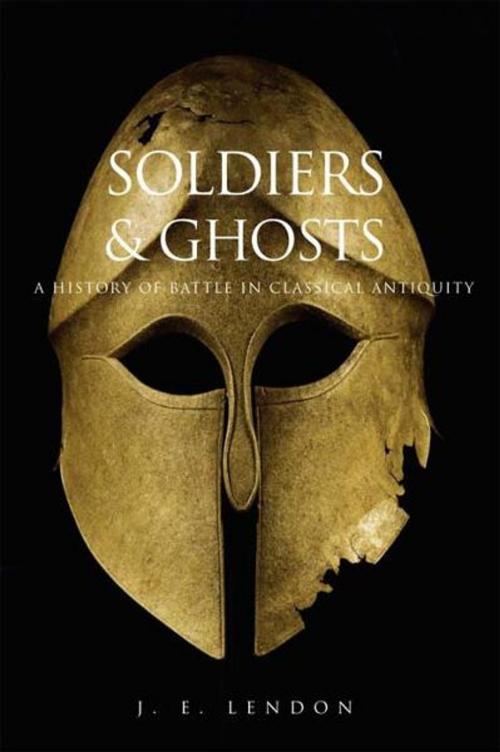| Author: | J. E. Lendon | ISBN: | 9780300128994 |
| Publisher: | Yale University Press | Publication: | October 1, 2008 |
| Imprint: | Yale University Press | Language: | English |
| Author: | J. E. Lendon |
| ISBN: | 9780300128994 |
| Publisher: | Yale University Press |
| Publication: | October 1, 2008 |
| Imprint: | Yale University Press |
| Language: | English |
Sparta, Macedon, and Rome-how did these nations come to dominate the ancient world? What set their armies apart? Noting this was an age that witnessed few technological advances, J. E. Lendon shows us that the most successful armies were those that made the most effective use of cultural tradition. Ancient combat moved forward by looking backward for inspiration-the Greeks, to Homer; the Romans, to the Greeks and to their own heroic past. The best ancient armies recruited soldiers from societies with strong competitive traditions; and the best ancient leaders, from Alexander to Julius Caesar, called upon those traditions to encourage ferocious competition at every rank.
Ranging from the Battle of Champions between Sparta and Argos in 550 B.C. through Julian’s invasion of Persia in A.D. 363, Soldiers and Ghosts brings to life the most decisive military contests of ancient Greece and Rome. Lendon places these battles, and the methods by which they were fought, in a sweeping narrative of ancient military history. On every battlefield, living soldiers fought alongside the ghosts of tradition-ghosts that would inspire greatness for almost a millennium before ultimately coming to stifle it.
Sparta, Macedon, and Rome-how did these nations come to dominate the ancient world? What set their armies apart? Noting this was an age that witnessed few technological advances, J. E. Lendon shows us that the most successful armies were those that made the most effective use of cultural tradition. Ancient combat moved forward by looking backward for inspiration-the Greeks, to Homer; the Romans, to the Greeks and to their own heroic past. The best ancient armies recruited soldiers from societies with strong competitive traditions; and the best ancient leaders, from Alexander to Julius Caesar, called upon those traditions to encourage ferocious competition at every rank.
Ranging from the Battle of Champions between Sparta and Argos in 550 B.C. through Julian’s invasion of Persia in A.D. 363, Soldiers and Ghosts brings to life the most decisive military contests of ancient Greece and Rome. Lendon places these battles, and the methods by which they were fought, in a sweeping narrative of ancient military history. On every battlefield, living soldiers fought alongside the ghosts of tradition-ghosts that would inspire greatness for almost a millennium before ultimately coming to stifle it.















